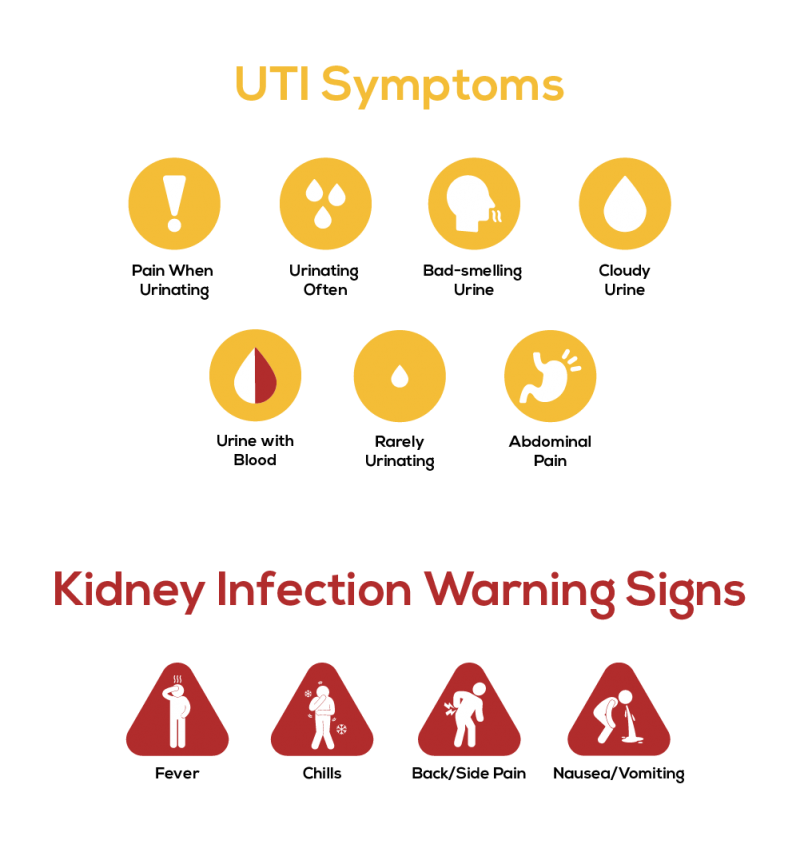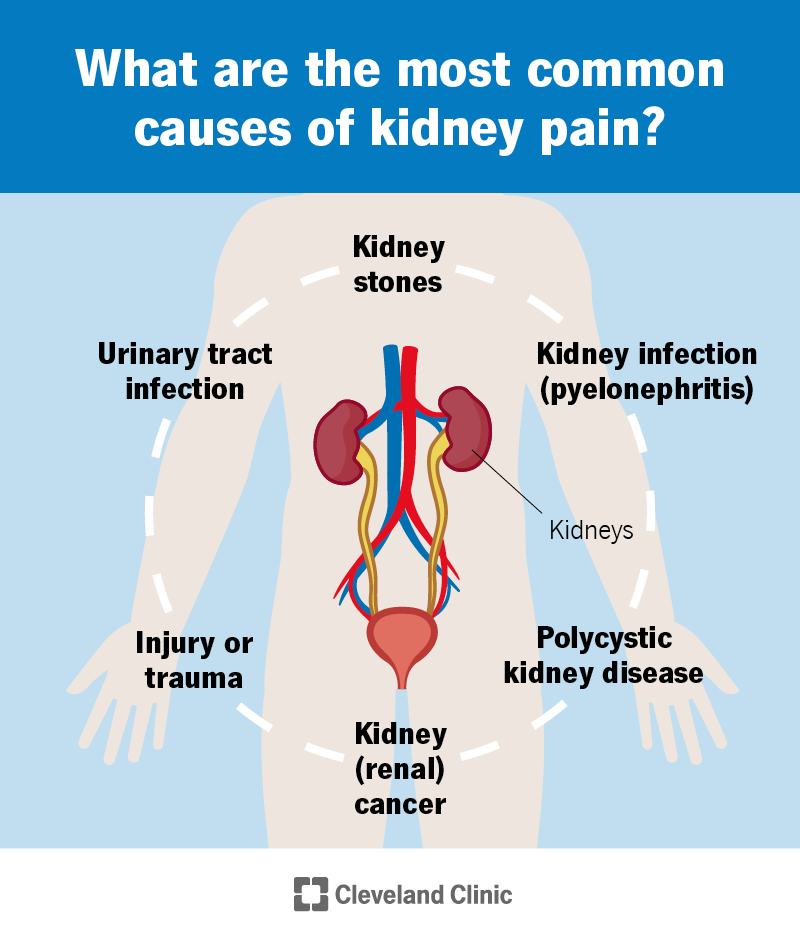Kidney Stones vs UTI: Just How to Recognize and Treat Each Condition Successfully
Kidney Stones vs UTI: Just How to Recognize and Treat Each Condition Successfully
Blog Article
Exploring the Symptoms and Causes of Kidney Stones in Comparison to Urinary System Infections: An In-depth Guide
The expedition of kidney stones and urinary system system infections (UTIs) discloses an intricate interplay of signs and symptoms and underlying causes that necessitate cautious evaluation. While both conditions can cause hematuria, they present distinct professional attributes and occur from various etiological variables. Comprehending the subtleties of each condition is important for effective medical diagnosis and management. What are the vital distinctions in their symptoms, and just how might these notify treatment approaches? The solution to these inquiries might provide essential insights into the avoidance and care of these common urological issues.
Introduction of Kidney Stones
Kidney rocks, likewise called kidney calculi, form when particular materials in the pee crystallize and accumulation, bring about the growth of difficult down payments within the kidneys. These rocks can vary in size, varying from a grain of sand to a golf ball, and can be composed of different products, one of the most usual being calcium oxalate, uric acid, struvite, and cystine. The formation of kidney rocks is influenced by numerous factors, including dietary routines, liquid intake, and genetic predisposition.
Signs and symptoms of kidney rocks may consist of serious discomfort in the back or side, blood in the urine, nausea or vomiting, and regular peeing, especially as the rock relocates through the urinary system tract. Medical diagnosis generally entails imaging studies such as ultrasound or CT scans, alongside urinalysis to identify the stone's structure.
Treatment choices differ based upon the size and kind of stone, along with the seriousness of symptoms (Kidney Stones vs UTI). Small rocks might pass normally with boosted liquid intake, while bigger stones might require medical treatments such as lithotripsy or surgical removal. Understanding the pathophysiology and threat aspects connected with kidney rocks is essential for effective avoidance and monitoring
Review of Urinary System System Infections
Urinary system system infections (UTIs) prevail bacterial infections that influence any kind of component of the urinary system, consisting of the kidneys, ureters, bladder, and urethra. They primarily occur when bacteria, often from the gastrointestinal tract, go into the urinary system, resulting in swelling and infection. UTIs are categorized right into 2 major types: complex and uncomplicated. Straightforward UTIs generally take place in healthy people with normal urinary system tracts, while challenging UTIs may emerge in individuals with underlying conditions, such as architectural problems or jeopardized immune systems.
The frequency of UTIs is especially higher in ladies than men, mostly as a result of physiological distinctions, such as a much shorter urethra. Risk elements include sex-related task, certain contraceptive approaches, urinary system retention, and dehydration. The medical diagnosis of UTIs is typically validated via urine examinations, which might disclose the presence of germs, leukocyte, or red blood cells.

Symptoms of Kidney Stones
The pain linked with kidney stones can use this link materialize in various methods, typically leading people to seek clinical attention. Among the most typical signs is serious discomfort, normally local in the lower back or side, which might emit to the abdomen or groin. This discomfort, often explained as sharp or cramping, can take place instantly and might rise and fall in strength.
Furthermore, people might experience hematuria, or blood in the urine, which go to this site can range from tiny total up to noticeable staining. This symptom may be come with by changes in urinary system practices, such as increased regularity or necessity, in addition to discomfort throughout urination. Nausea and vomiting are additionally common, frequently arising from the body's response to intense pain.
In some situations, individuals may experience fever and cools, especially if a secondary infection creates due to the obstruction brought on by the stones. Generally, the mix of extreme discomfort, hematuria, transformed urinary system patterns, and gastrointestinal signs and symptoms can offer significant understanding right description into the existence of kidney stones, calling for prompt clinical assessment and intervention. Comprehending these symptoms is vital for prompt diagnosis and efficient management of the condition.
Signs And Symptoms of Urinary System Infections
Infections within the urinary system system commonly present a series of distinct signs and symptoms that can substantially affect day-to-day live. The most usual symptoms consist of a persistent impulse to urinate, usually accompanied by a burning sensation during urination, referred to as dysuria. People might likewise experience boosted frequency of urination, creating percentages of urine each time.
Various other remarkable signs and symptoms consist of smelly or gloomy urine, which may show the visibility of microorganisms or pus. In many cases, urine may show up red or pink due to the visibility of blood, a problem known as hematuria. Furthermore, individuals may experience pelvic discomfort or stress, which can further exacerbate the sensation of urgency.
Systemic symptoms may additionally materialize, such as high temperature, chills, and exhaustion, specifically if the infection has risen to the kidneys. It is necessary to recognize these signs and symptoms early, as untreated urinary system tract infections can cause more severe difficulties. Kidney Stones vs UTI. Prompt clinical interest is suggested when these signs are observed, enabling proper analysis assessment and treatment to ease discomfort and protect against more health concerns
Reasons of Each Condition
Regularly, kidney stones and urinary tract infections emerge from distinct yet sometimes overlapping reasons that can influence individuals in a different way. Dehydration, inadequate fluid intake, and high-sodium diet plans can aggravate these conditions, advertising condensation within the urinary system.

Understanding these unique causes is vital for prevention and treatment. Kidney Stones vs UTI. While way of life adjustments may mitigate the danger of kidney rocks, ideal health and timely treatment of urinary system system infections are crucial for minimizing their reoccurrence and associated complications
Final Thought
In recap, kidney rocks and urinary system infections present distinctive symptoms and underlying causes. Kidney rocks are characterized by extreme discomfort and metabolic variables, while urinary tract infections mainly include microbial infections resulting in urinary system seriousness and discomfort. Although both problems can cause hematuria, their formation systems vary substantially. Comprehending these differences is essential for efficient medical diagnosis and therapy, inevitably boosting patient results for those affected by either problem.
The expedition of kidney stones and urinary system infections (UTIs) discloses a complex interaction of signs and symptoms and underlying reasons that necessitate careful assessment.Urinary tract infections (UTIs) are common microbial infections that impact any type of component of the urinary system, including the kidneys, ureters, bladder, and urethra.Frequently, kidney rocks and urinary system system infections emerge from distinctive yet often overlapping reasons that can affect individuals in different ways.In recap, kidney rocks and urinary system tract infections present distinct signs and symptoms and underlying causes. Kidney rocks are characterized by serious pain and metabolic variables, while urinary tract infections mainly include microbial infections leading to urinary urgency and pain.
Report this page